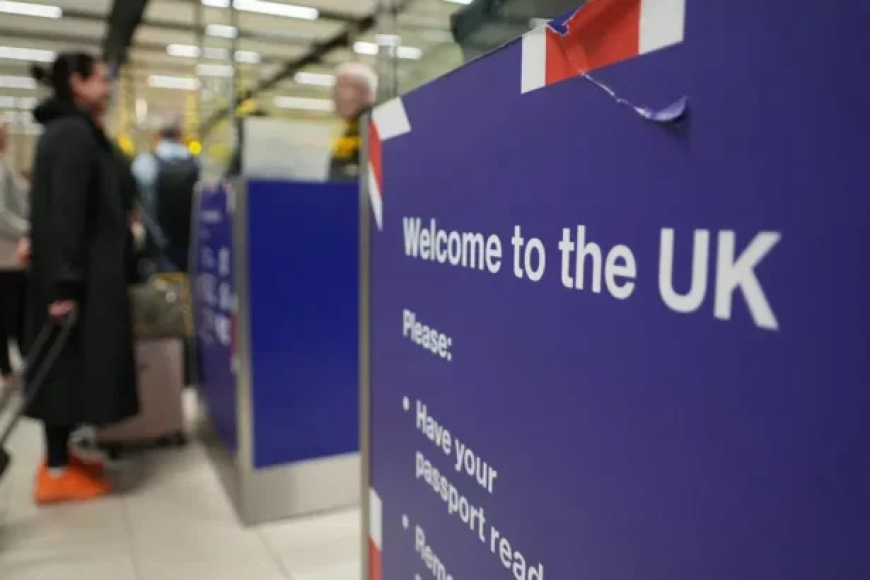UK to End Care Worker Visas, Impacting Migrants from Ghana and Nigeria
The United Kingdom is set to scrap its care worker visa scheme as part of sweeping immigration reforms. The decision is expected to affect thousands of migrants from Ghana, Nigeria, and other Commonwealth nations who have used the route to secure legal employment and residency in the UK’s care sector.

London, UK – The UK Home Office has confirmed that the Health and Care Worker visa route, which has enabled thousands of foreign nationals — particularly from Ghana, Nigeria, and India — to fill critical roles in the UK’s care sector, will be phased out in the coming months.
The policy change is part of Prime Minister Rishi Sunak's broader immigration reform plan, aimed at cutting net migration figures while encouraging more domestic hiring within the UK's care industry.
???? End of a Gateway
Introduced in 2021 to address the UK’s growing shortage of social care workers amid the COVID-19 pandemic, the visa route allowed care homes and private providers to recruit from abroad, offering Tier 2 skilled worker visas that led to long-term stay and, in some cases, permanent residency.
Over 100,000 foreign workers, many from West Africa, especially Ghana and Nigeria, took advantage of the scheme to improve their livelihoods while meeting the UK’s urgent care staffing needs.
However, amid public concerns over immigration numbers and alleged visa abuses, the UK government has opted to scrap the pathway entirely by late 2025.
“We are making necessary adjustments to ensure the integrity of our immigration system while investing in domestic workforce training,” a Home Office spokesperson said.
???? Implications for Ghana and Nigeria
The move has sparked concern across West Africa, where many families have made significant financial sacrifices to help relatives migrate through the care visa pathway. In Ghana, migration consultants and health training institutes are already reporting panic among applicants and nursing students.
According to UK migration data, Ghana and Nigeria ranked among the top five source countries for care worker visas between 2022 and 2024. This change will likely disrupt migration plans for many and could further strain remittance-dependent households.
Nigerian and Ghanaian communities in the UK have also expressed dismay, warning that the decision may lead to a spike in undocumented migration and exploitation through unregulated job offers.
???? Economic and Labour Impact
Experts fear the UK may face renewed staffing shortages in care homes — a sector already struggling with low wages, high turnover, and burnout.
“Ending the care visa without first resolving the recruitment crisis locally may create a new bottleneck in health and social care,” said Professor Linda Boateng, a migration and health policy analyst.
???? What Happens Next?
Current visa holders will not be deported and may continue their contracts until expiration. However, new applications will soon be closed, and sponsorship licenses may be revoked unless providers meet stricter conditions.
The UK government has promised to invest in training British nationals for care jobs, but critics argue this solution will take years to bridge the gap left by foreign workers.
???? Top Knowledge Media Takeaway:
The end of the UK’s care worker visa route is a policy pivot with global consequences, especially for hopeful migrants from Ghana and Nigeria. As the window closes, both aspiring migrants and care providers must rethink their strategies and brace for a period of uncertainty.
What's Your Reaction?



















































































